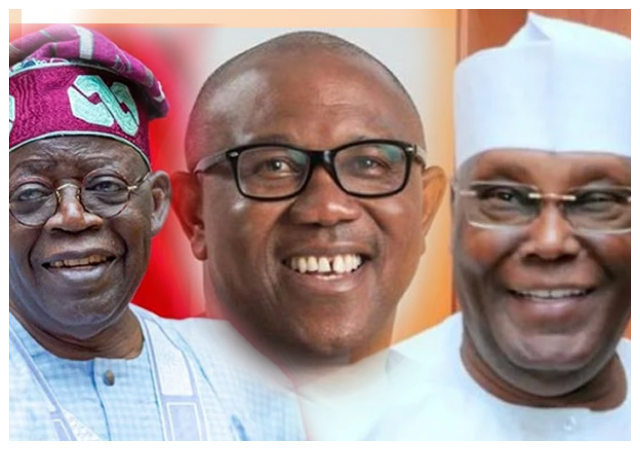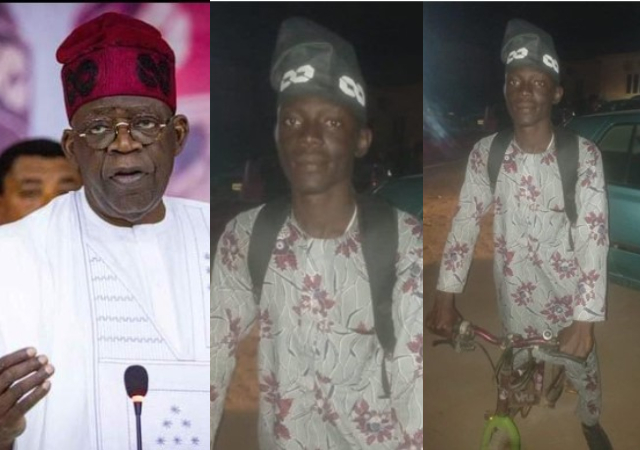
The Supreme Court has scheduled Monday, October 23, 2023, for the hearing of the appeals of the Peoples Democratic Party (PDP) candidate Alhaji Atiku Abubakar and his counterpart in the Labour Party, Mr. Peter Obi, who filed separate appeals to overturn President Bola Ahmed Tinubu’s election victory. The Supreme Court informed all parties of the hearing date in notices it sent to them on Thursday.
Remember that a five-member panel of the presidential election court chaired by Haruna Tsammani dismissed the petitioners’ lawsuits on the grounds that, among other things, they had not provided evidence to support their claims of electoral fraud against INEC, the Nigerian electoral commission, and Mr. Tinubu.
The two, however, are asking the supreme court to overturn the decision of the Presidential Election Petition Court, PEPC, which declared Tinubu of the ruling All Progressives Congress, APC, as the legitimate victor of the presidential election that took place on February 25.
In contrast to Atiku, who used a team of 67 attorneys, including 18 Senior Advocates of Nigeria (SAN) under the leadership of Chief Chris Uche, SAN, to challenge Tinubu’s election victory, Obi used his own legal team, under the direction of Dr. Livy Uzoukwu, SAN, to file 51 grounds for appeal with the Supreme Court.
Both Atiku, who finished second in the election, and Obi, who finished third, are attempting to overturn the decision of the PEPC’s five-member panel under the leadership of Justice Haruna Tsammani, which dismissed the petitions they had filed against Tinubu on September 6.
Atiku specifically argued that the PEPC’s decision was not only “against the weight of the evidence,” but also resulted in a serious injustice being done to him.
Even though there was evidence that the Independent National Electoral Commission, INEC, had violated the laws and regulations governing the conduct of elections, the former vice president insisted that the PEPC panel had committed a legal error by failing to declare the presidential election invalid for violating the Electoral Act of 2022.
He charged that the PEPC’s unanimous decision was based on a flagrant misinterpretation and misrepresentation of the terms of both the Electoral Act of 2022 and the 1999 Constitution, as amended.
He argues that the lower court committed a legal error when it declined to uphold the requirement for electronic transmission of results for confirmation and verification of final results, which was introduced by the Electoral Act of 2022 for transparency and integrity of results in accordance with the Act’s principles. “
He claimed that the use of the Bimodal Voter Accreditation System, or BVAS, machines for electronic transmission of election results directly from the polling places to INEC’s collation system for the verification, confirmation, and collation of results before the announcement was required by sections 64(4) and (5) of the Electoral Act and INEC’s Regulations & Guidelines for the conduct of the election, both of which he offered as evidence.
In contrast, Obi asserted in his own appeal that the PEPC panel erred on the law and subsequently erred in judgment by dismissing his petition.
When the panel decided that he did not identify the polling places where election irregularities took place, he claimed that the panel had incorrectly assessed the proof of evidence he had presented to it and had thus caused a grave miscarriage of justice.
Obi and the LP also criticized the PEPC for rejecting their claim on the grounds that they failed to provide specifics regarding the numbers of votes or scores that were purportedly tampered with or inflated in favor of President Tinubu and the APC.
They also charged the Justice Tsammani-led panel with violating the law when it used paragraphs 4(1)(d)(2) and 54 of the First Schedule to the Electoral Act 2022 to strike out portions of the petition.
While asserting that the lower court had violated his right to a fair trial, Obi insisted that the testimony of his witnesses had been incorrectly rejected as being incompetent.
He claimed to have uploaded 18, 088 blurred results to INEC’s IReV portal, and he complained to the panel, which unfairly dismissed this claim.
President Tinubu was previously charged with a crime and fined $460,000 in the USA for his involvement in a drug-related case, according to evidence that Obi insisted the PEPC disregarded, according to Obi.
In his appeal, Obi added, “Imposition of a fine is not limited to a criminal conviction, as the word, in law, includes a civil forfeiture.”
Meanwhile, President Tinubu and the APC have since requested that the Supreme Court dismiss the appeals because they claim they are without merit.
In addition, President Tinubu urged the court to deny Atiku’s request for authorization to submit a copy of his certificate that was made public by the Chicago State University in the United States.



![Peter Obi Should Go Back To His State And Campaign, He Is Campaigning In Lagos Because We Developed And Stabilized It- Lagos Deputy Governor, Babafemi Hamzat [Video]](https://www.gistlover.com/wp-content/uploads/2022/10/obi-Hamzat.jpg)